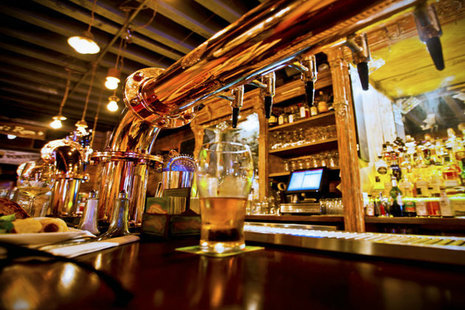All tips will go to staff under new plans to overhaul tipping practices set out by the government, providing a financial boost to hospitality workers across the country.
Most hospitality workers – many of whom are earning the National Minimum Wage or National Living Wage – rely on tipping to top up their income. But research shows that many businesses that add a discretionary service charge onto customer’s bills are keeping part or all of these service charges, instead of passing them onto staff.
The government will make it illegal for employers to withhold tips from workers. The move is set to help around 2 million people working in one of the 190,000 businesses across the hospitality, leisure and services sectors, where tipping is commonplace and can make up a large part of their income.
This will ensure customers know tips are going in full to workers and not businesses, ensuring workers receive a fair day’s pay for a fair day’s work.
Tipping legislation will build on a range of government measures to protect and enhance workers’ rights. In the past 18 months alone, the government has introduced parental bereavement leave, protected new parents on furlough, and given millions a pay rise through a higher minimum wage.
Labour Markets Minister Paul Scully said: “Unfortunately, some companies choose to withhold cash from hardworking staff who have been tipped by customers as a reward for good service.
“Our plans will make this illegal and ensure tips will go to those who worked for it.
“This will provide a boost to workers in pubs, cafes and restaurants across the country, while reassuring customers their money is going to those who deserve it.”
Moves towards a cashless society have accelerated poor tipping practices, as an increase in card payments has made it easier for businesses to keep the funds.
80% of all UK tipping now happens by card, rather than cash going straight into the pockets of staff. Businesses who receive tips by card currently have the choice of whether to keep it or pass it on to workers.
The new plans will create consistency for those being tipped by cash or card, while ensuring that businesses who already pass on tips fairly aren’t penalised.
The legislation will include:
- a requirement for all employers to pass on tips to workers without any deductions
- a Statutory Code of Practice setting out how tips should be distributed to ensure fairness and transparency
- new rights for workers to make a request for information relating to an employer’s tipping record, enabling them to bring forward a credible claim to an employment tribunal
Under the changes, if an employer breaks the rules they can be taken to an Employment Tribunal, where employers can be forced to compensate workers, often in addition to fines.
Tipping legislation will form part of a package of measures which will provide further protections around workers’ rights.
Building on economic support measures, the government recently announced a range of initiatives to support the hospitality sector through its first ever Hospitality Strategy. This set out ways to help the sector improve its resilience, including by making hospitality a career option of choice, boosting creativity, and developing a greener sector.
Further details:
- Legislation on tipping will be supported by a statutory Code of Practice, developed in partnership with workers and employers to set out the principles of fairness and transparency
- tips already cannot be used to count towards minimum wage pay and this has been the case since 2009, when a previous voluntary Code of Practice was published to improve the information available concerning the treatment of tipping payments and increase transparency in this area
- workers can call the Advisory, Conciliation and Arbitration Service (ACAS) helpline (0300 123 1100) for free, impartial, and confidential advice about their rights and entitlements on minimum wage and tipping practices
Do you have a story for Stand Up For Southport? Please message Andrew Brown via Facebook here or email me at: mediaandrewbrown@gmail.com









Scrap metal processing and recycling Scrap metal business development Scrap iron recycling center
Ferrous material collaborations, Iron recyclable waste, Scrap metal recycling industry
Metal scrap inspection Ferrous material recycling baling Iron salvage services
Ferrous material industry representation, Iron waste reclamation yard, Metal scrap recuperation
Metal scrap reutilization Ferrous material outreach Iron and steel reuse
Ferrous material policy implications, Iron recovery plant, Global metal commodity trade
Metal reclamation and recovery services Ferrous material market intelligence Scrap iron scrapyard
Ferrous material testing, Iron scrap recovery yard, Metal commodity trading
Scrap metal decommissioning Ferrous waste reclamation yard Scrap iron reclaiming operations
Ferrous scrap metal recycling, Iron reclamation and recycling, Metal recycling salvage
Scrap metal reclamation operations Ferrous recovery yard Iron scrap grading
Ferrous material efficiency, Iron scrap industry trends, Scrap metal sorting